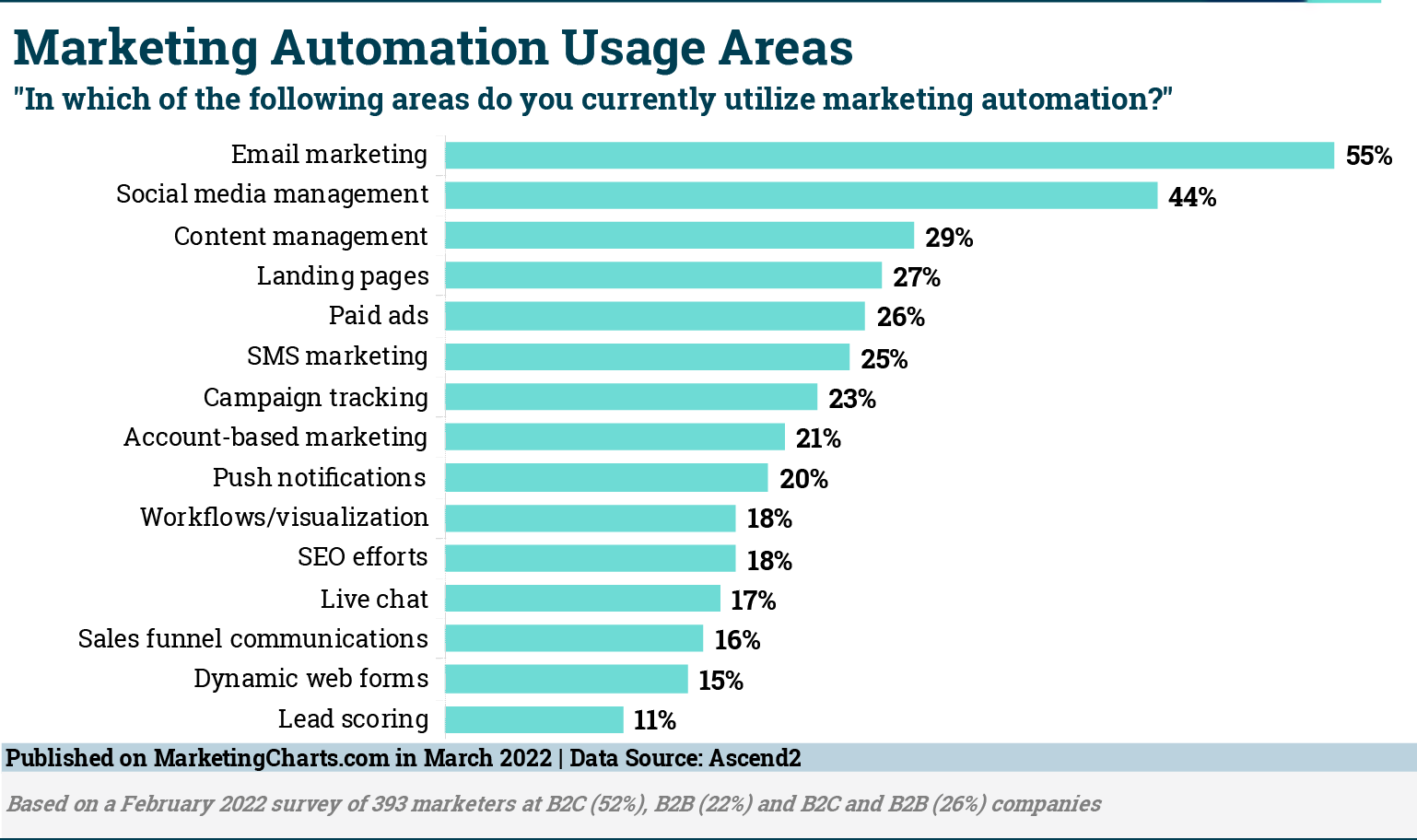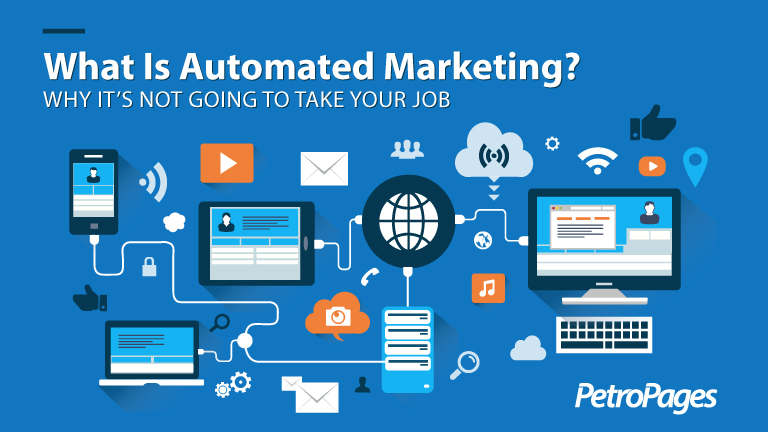Per an Ascend2 report, marketers mention several advantages of using marketing automation, chief among them are improvements in the customer experience and better use of staff time. And automation has also been linked to a stronger ability to prove ROI as well as increased coordination between marketing and sales teams. With these benefits, almost one-third of marketers surveyed by Ascend2 say they’ll be shopping for a new solution in the coming year.
Some 31% said they’ll be shopping for a solution, versus 26% who won’t be in the market. (The remaining 43% are unsure.) The results are interesting in light of a 2021 report indicating that 2 in 3 marketers had replaced a martech tool in the previous year, with marketing automation the most likely to have been replaced (by 24%).

Automation Usage Trends
The Ascend2 study suggests that there is some room for improvement in automation of the customer journey. While close to 1 in 3 respondents say their customer journey is either fully (9%) or mostly (22%) automated, for a majority – 47% – the overall customer journey remains only partially automated. In fact, for 1 in 5 (22%) the customer journey isn’t automated at all.
Looking at the areas in which automation is being deployed, the report finds that email marketing (55%) is the most widely used, much as it is the most broadly used for personalization. This was the only area for which a majority of marketers reported using automation.
Following email is social media management (44%), which was also the second-most utilized area for automation after email last year. However, after that content management is the third-most this year, as opposed to paid ads last year. Landing pages remain relatively high on the list, as do paid ads, while SMS marketing jumps up this year. Relative to last year, there seem to be fewer marketers putting automation to use in their lead scoring.
Using AI with Automation
While automation can improve efficiencies, adding artificial intelligence (AI) can help to further improve the customer experience.
The survey asked respondents in which areas they are currently testing or utilizing AI in conjunction with their marketing automation. The areas that emerged at the top were paid advertising (32%) and personalizing email messages/offers (32%). Not surprisingly, AI is being leveraged in areas where automation is more broadly used.
Meanwhile, about 1 in 5 report using or testing AI in conjunction with automation for product/content recommendations, email subject line personalization, predictive analytics, and account identification.
Other Findings:
- Price (58%) and ease of use (54%) are the most widely cited primary factors driving the purchase decision of a marketing automation tool, much as they have been in years past.
- Marketers are more likely to describe the success of their marketing automation at achieving important objectives as “very successful” (22%) than “unsuccessful” (14%). For the majority (64%), their marketing automation has been “somewhat successful” in meeting their goals.
- 7 in 10 respondents report that it is either extremely (11%) or somewhat (59%) easy to measure the success of marketing automation in meeting their objectives.
About the Data: The results are based on a survey conducted in February 2022 among 393 marketers, half (52%) of whom count B2C as their primary marketing channel. The remainder primarily target B2B (22%) or B2B and B2C equally (26%). Some 43% of respondents work at companies with at least 50 employees.
Need assistance with marketing automation platform selection, onboarding and/or optimization? Schedule a call or email Lori Berson at lberson@BersonDeanStevens.com.
Also, check out our agency listing on Design Rush.
BersonDeanStevens has been a recognized brand strategy and marketing leader for over 25 years, including over a decade in marketing and sales automation. We work in partnership with you to differentiate your brand and achieve your business goals. Client list.
